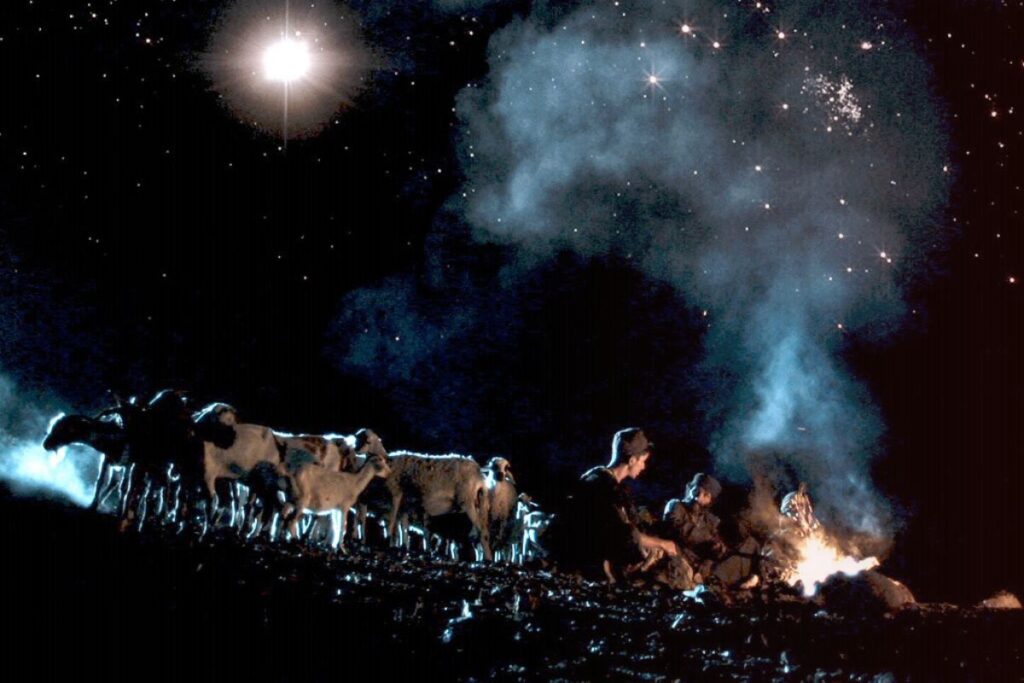
Luke 2:14 “Glory to God in the highest heaven, and on earth peace to those on whom his favour rests.”
I wonder what it would have been like to hear those words.
You can imagine the surprise of the shepherds, as a quiet evening turned into an unforgettable moment. As the angelic host appeared, their gaze was lifted from the fields around them to the heavens above them, their hearts were filled with the wonder of a glorious proclamation.
Here they witnessed a snapshot of heaven. A prophetic moment unfolding before their eyes. They lay hold of an eternal truth – that God, in the highest heaven, would bring his peace to those on earth. The promised Messiah had arrived!
Notice who these words were spoken to
No doubt the shepherds wondered if they were the intended audience for this glorious proclamation. They were amongst the lowliest in society. Their work was rough, dirty, and deemed to be of little significance by many of the powerful and mighty.
Surely, it would be the theologians and spiritual leaders of the time, the Pharisees and scribes, who would receive this message first! Yet, in this field, far from the centre of power, wealth or religion, this glorious message was given to lowly shepherds.
This passage has much to say to the suffering church today. Despite the shepherds’ perceived insignificance, they are the first recipients of a message of immense significance. This audience was not a random choice but is another instance of how God speaks to and uses those who are marginalised, overlooked, and downtrodden.
This is a pattern we see throughout scripture and one which Jesus fulfils in his whole earthly ministry. It shows us that the proclamation of God’s peace and favour is not reserved for those who have power and influence, but is first and foremost for those who are on the margins.
What an encouragement to know that God’s peace and favour is not contingent on one’s status or worth, but is available to all, and particularly to those who suffer.
Notice who these words were spoken about
Despite their unlikely status, the shepherds must have been even more surprised by the manner in which this Messiah had arrived. Far from a palace or the throne, far from Jerusalem or the Temple, the Promised One was lying in a feeding trough for cattle.
Imagine that! A peasant baby sleeping in the manger didn’t seem a likely candidate for the Messiah and Saviour of the world. Most people weren’t expecting Jesus to come in this way.
The manner of his coming sets a precedent for his whole life. Instead of being a mighty warrior or bold political leader, Jesus describes himself as gentle and lowly in heart (Matt 11:29). This self-description serves as a radical departure from the way in which those in positions of power and privilege so often describe themselves. We find that in Jesus, God’s peace and favour are made incarnate.
This serves as a profound source of encouragement for the suffering church. The God we follow is not distant or disinterested, but a compassionate and approachable Saviour. God’s peace and favour is for those who are weary and heavy laden, for those who are poor in spirit, those who are meek, who mourn, who are persecuted because of righteousness.
From the manger to the cross, the manner of Jesus’ life provides assurance that he not only understands our suffering but stands with and sustains us in these lowly moments.
I wonder what it is like for you to hear these words
Over this Christmas season, may we find comfort and joy in the words of the angels. May our gaze be lifted from the circumstances around us, and our hearts filled with the wonder of a lowly Saviour who brings peace and favour for those who suffer.







